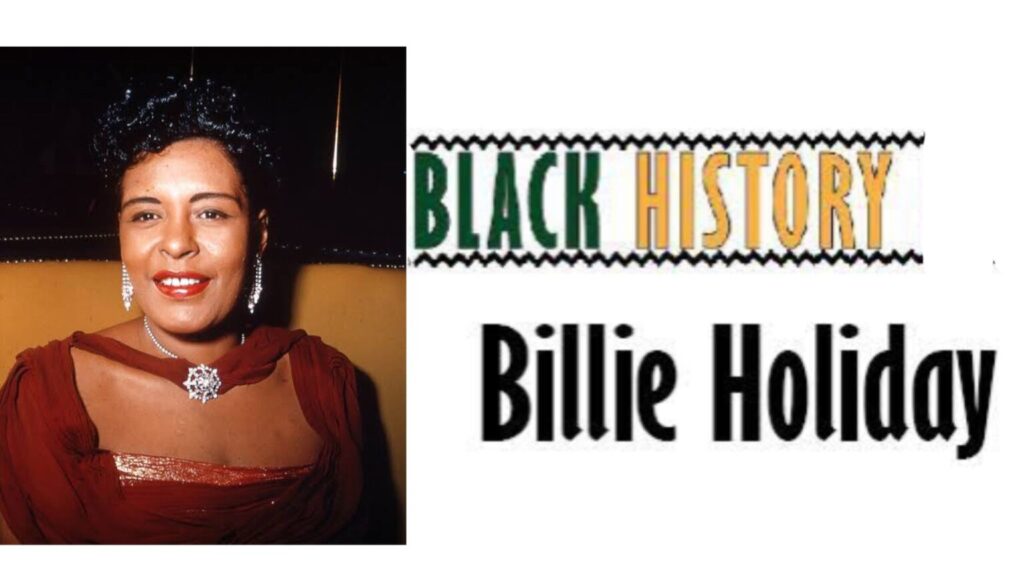Maybe you can open your heart, when listening to this song, to the suffering and injustice contained in the practice of lynching black Americans.
According to Wikipedia “Strange Fruit” is a song written and composed by Abel Meeropol (under his pseudonym Lewis Allan) and recorded by Billie Holiday in 1939. The lyrics were drawn from a poem by Meeropol published in 1937. The song protests the lynching of Black Americans with lyrics that compare the victims to the fruit of trees. Such lynchings had reached a peak in the Southern United States at the turn of the 20th century and the great majority of victims were black.[2] The song has been called “a declaration” and “the beginning of the civil rights movement“. (read more of the Wikipedia article here).
Additionally find more information in this essay by Julia Blackburn.
Here is a synopsis offered by the Twitter account “African and Black History”:
Billie Holiday recorded the first great protest song of the Civil Rights Movement: ‘Strange Fruit’.
The Chilling Story of Strange Fruit and how Billie Holiday was targeted
“Strange Fruit” was originally a poem written by Jewish-American writer, teacher and songwriter Abel Meeropol, under his pseudonym Lewis Allan, as a protest against lynchings and later set it to music.

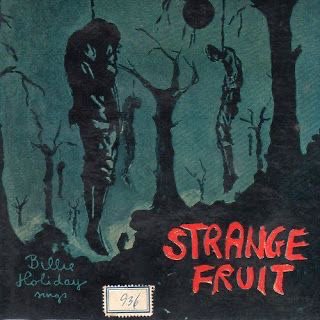
The song soon came to Billie Holiday’s attention & after so many frequent requests of that song, she closed out EVERY performance with it. The waiters would stop serving ahead of time for complete silence, the room would darken, a spotlight would shine on Holiday’s face …

Radio stations in the South wouldn’t play it, record labels wouldn’t record it, BUT YET, the song rose in the charts selling over I million copies. Despite the success, a government agency was determined to shut her down.
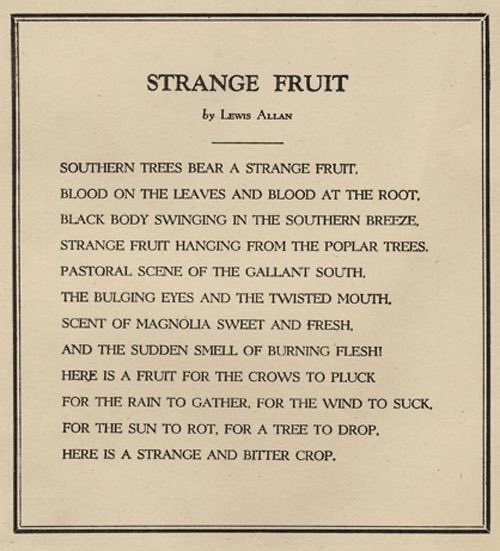
One night in 1939, she received a warning from the Federal Bureau of Narcotics to never sing the song. This order was led by commissioner Harry Anslinger. He had a mission to eradicate all drugs everywhere, and believed jazz music was the problem. His attack was racially led.
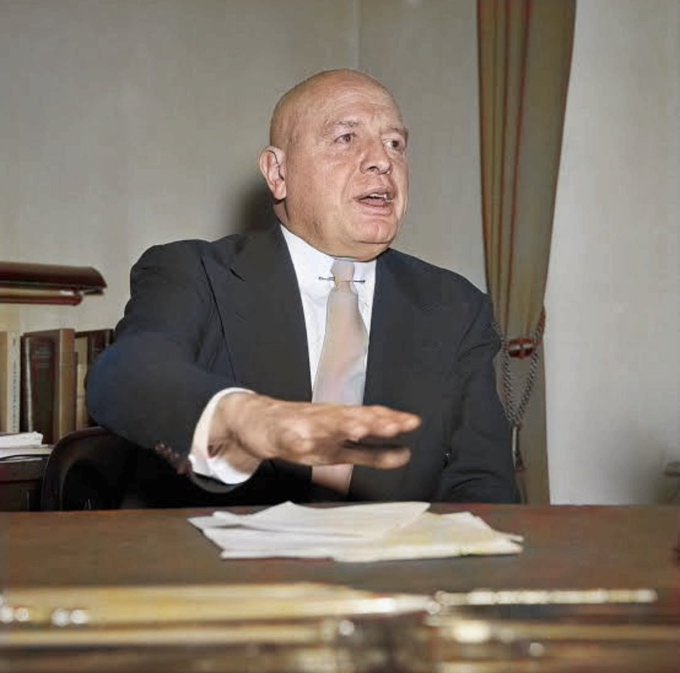
Holiday’s known struggles with alcohol, drugs, and vocal voice against white supremacy made her a target. He sent undercover agents after her, including arranging for her abusive husband to set her up.
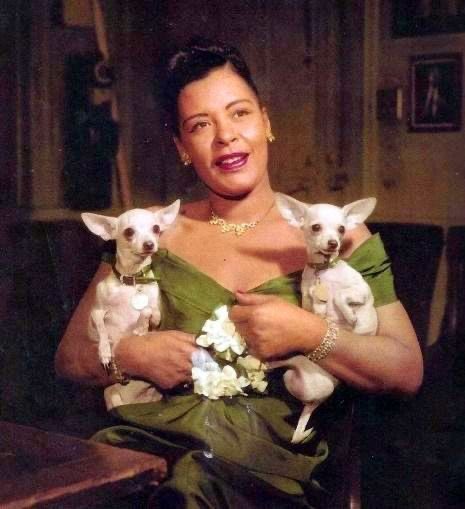
She was put on trial (The United States of America vs. Billie Holiday) just wanting to recover, but was sent to prison and her cabaret license was revoked. That didn’t keep her down. She continue to perform “Strange Fruit” even at a sold out show at Carnegie Hall.
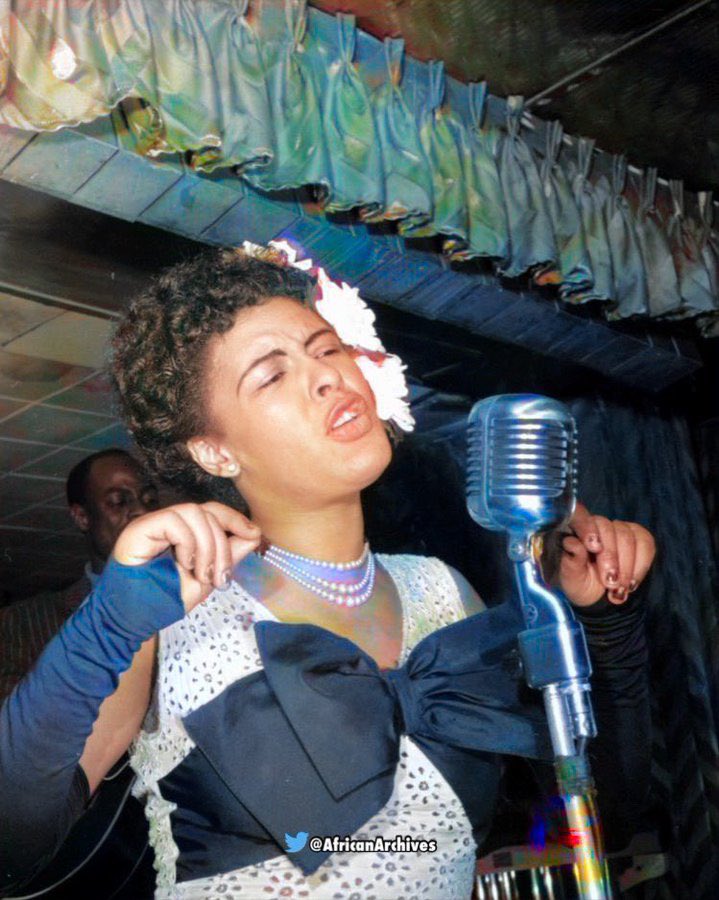
In 1959, Holiday collapsed and was sent to the hospital with liver disease and goes into heroin withdrawal. Her friend managed to have the hospital give her methadone to help her recover.
Anslinger’s team arrested her on her hospital bed cutting off her methadone medication after claiming to have found heroin in her bedroom. Ten days later, Holiday died.
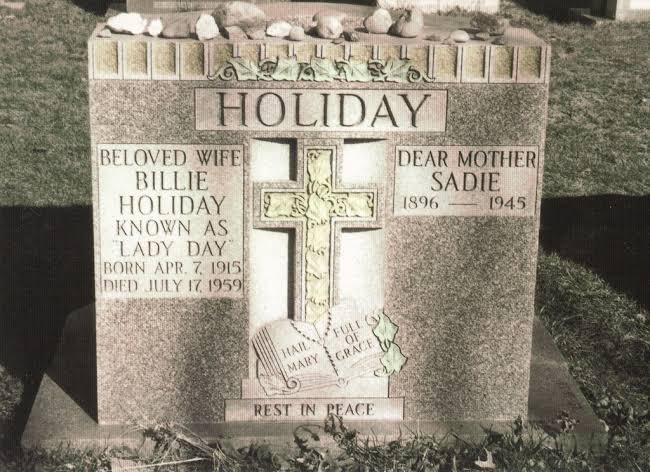
This brief introduction was prepared by “African and Black History”, an account on Twitter. If you find this information helpful & love her or his content, you can support this history project through donations/tips on: http://ko-fi.com/africanarchives
